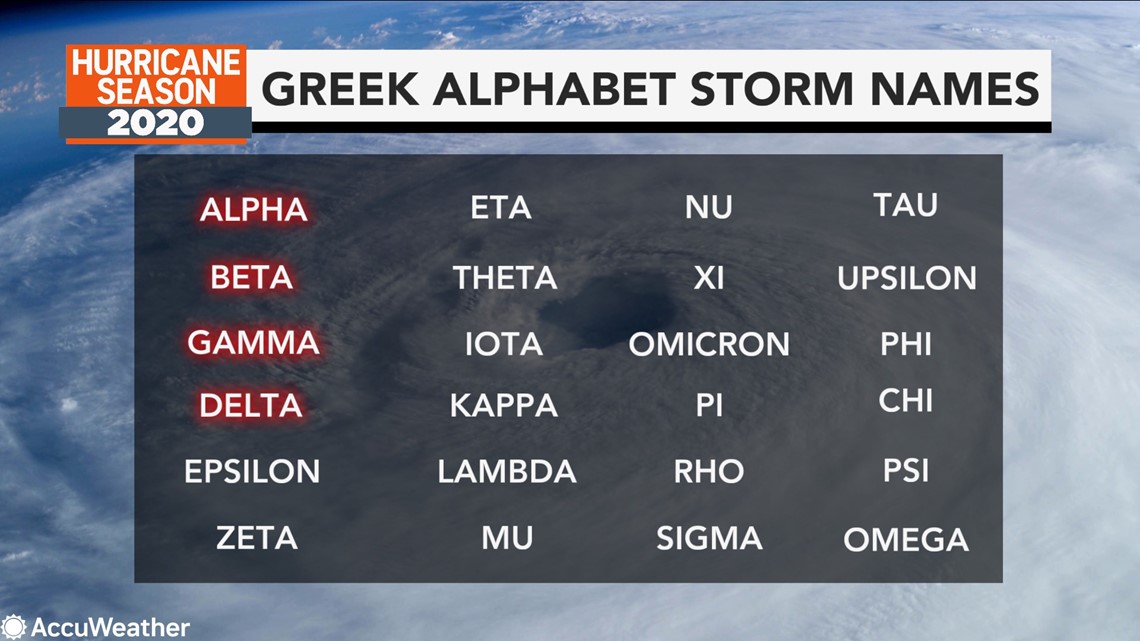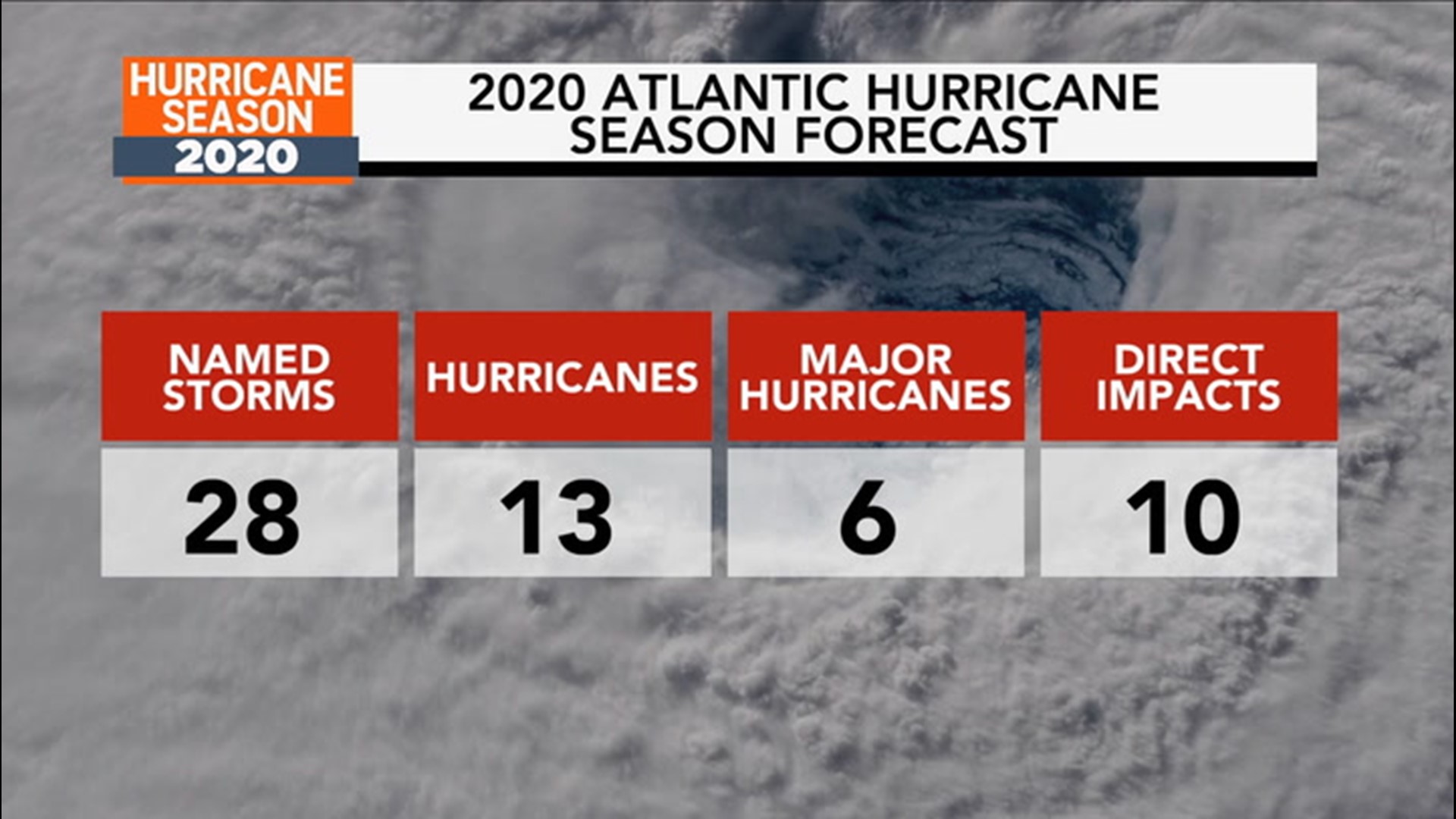The 2020 Atlantic hurricane season has brought twice the typical number of storms and is only three named storms away from becoming the most active hurricane season on record. With nearly two months left in the season, there is a high possibility it could happen.
The hyperactive hurricane season has already exhausted the list of 21 names that are used to identify tropical systems -- something that has happened only one other time since the current naming convention was implemented in 1953.
Since naming tropical storms and hurricanes began during the mid-1900s, it is the second most active Atlantic hurricane season on record, behind the notorious 2005 Atlantic hurricane season with 28 named storms. 2005 beat out 1933, which spawned 21 named storms, for the most storms ever in one season. Several of those storms in 2005 strengthened into historic hurricanes, including Katrina, Rita and Wilma.
As of Monday, Oct. 5, there have been 25 named tropical systems, well above average for this point in the season. Typically, there are just 12 named storms in an entire season. It is very rare for there to be more than 21 named storms in one season, but when it happens, the Greek alphabet is used to name the storms.
Of those 25 named storms in 2020, nine made landfall in the contiguous United States, which ties the record from 1916 for the most ever in one season. Tropical Storm Delta formed in the Caribbean early Monday and is expected to add to the season's tally of land-falling storms in the U.S., potentially as a major hurricane along the central Gulf Coast. This is also only the second tropical cyclone season to feature the Greek-letter-storm-naming system, with the other season again being 2005.


Although there has been an explosion of activity in 2020 with twice the usual number of storms for an entire season, we are just now reaching the typical amount of accumulated cyclone energy (ACE) for a typical year.
While there has been more activity with more storms this hurricane season, the strength of the storms has not been as potent as one other year.
The "ACE" is a great way to get an idea of the true magnitude of a hurricane season, AccuWeather Senior Meteorologist Dave Samuhel explained.
The ACE Index, short for the accumulated cyclone energy index, provides a more comprehensive way for meteorologists to do just that. The index is calculated every six hours and approximates the wind energy generated by all of the named tropical systems.
According to AccuWeather meteorologists, it accounts for the strength and duration of these systems while they are at tropical storm intensity or higher. Storms that exhibit large ACE values are going to be the storms that not only create very strong winds but spawn them over a long duration of time.
"Despite the number of named systems, only eight have reached hurricane strength. Only two of those were major hurricanes. Despite the high number of named storms, the number of major hurricanes is about normal. During a typical season, there are 2.5 major hurricanes. The number of hurricanes this year is above the average of six," Samuhel said.
"Since many of the named systems were weak and didn't last long, the ACE value is very close to average. Even though we are ahead of the pace of the 2005 season, we are well behind the ACE of that season which was 250.3. The 2020 ACE value is only 101.08 so far this year," Samuhel said.
An entire hurricane season creates an ACE value of 106 units on average, according to AccuWeather's lead hurricane expert Dan Kottlowski. With nearly two months left to go in the season, Kottlowski expects the ACE value to climb to as high as 200 units before the season wraps up.
Even after the Atlantic hurricane season officially ends on Nov. 30, there is still the chance that one or two tropical systems could develop before 2020 comes to a close.
Near the end of 2005, following a historic season, Tropical Storm Zeta took shape in the far eastern Atlantic Ocean on Dec. 30. Zeta lingered over the open waters of the Atlantic until Jan. 7, 2006, before it dissipated. Zeta was the sixth storm to be given a name from the Greek alphabet that year. Earlier in December, Hurricane Epsilon churned over the Atlantic, several hundred miles east of Bermuda, and was only the sixth hurricane ever to develop during the month.
After the calendar flips to 2021, the next tropical system in the Atlantic basin will be named Ana.

